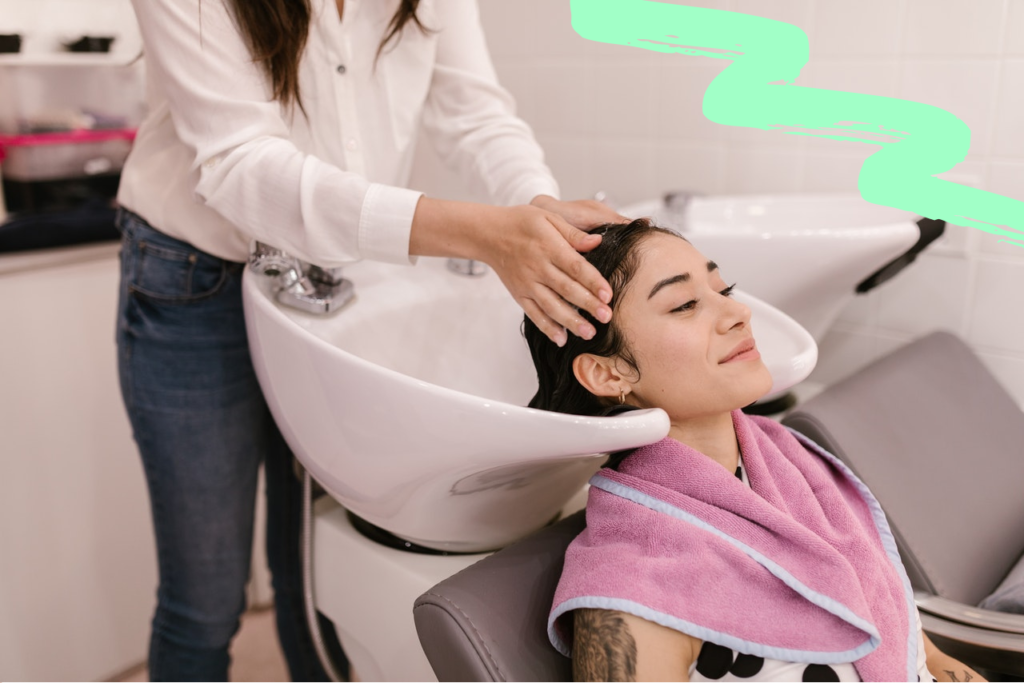Obsessed with eye lashes? Living for lipstick? Wake up thinking about make up? Well, have you ever thought about starting a beauty business?
Turning passion into a career never looked so good. Indeed, working in beauty is an increasingly popular profession in the UK, and for good reason. Not only is there always demand for beauty therapists – equating to a guaranteed job for life – but it’s also one of the fastest growing sectors in the UK today.
In fact, in a survey carried out by Mind and Body, it was revealed that ”The industry is expected to grow by 1.4% each year between 2019 and 2023, reaching £11.6 billion by the end of 2023.’’ That’s a whole lot of people spending a whole lot of money on pampering themselves.
What’s more, the industry contributed £30.4 billion to GDP in 2024, growing at 9% – more than four times faster than the overall UK economy. More of the same looks to be happening in 2025, with hairdressers and barbers seemingly on every UK street corner.
Are you thinking of starting a new business in the increasingly lucrative hair and beauty industry? Here are 8 things that you need to consider when thinking of starting a business.
Training
Whether you’re experienced in the sector or a relative newcomer to the world of beauty, one of the great things about this industry is that you’re always learning. Every day is a school day, as they say, and prior to beginning your beauty business journey, it’s sensible to update or refresh your skillset to make sure you’re starting your business on the front foot.
Generally speaking, you could either study something broad and all encompassing like a level 2 or 3 NVQ Diploma in Beauty Therapy, or something job specific like a hairdressing or nail technician course, should you already have a firm idea of the niche you’re going to pursue.
You’ll also need to bone up on the business side of things. Speaking of which…
Read: 5 exciting career paths for those looking to enter the beauty industry
Create A Business Plan
Once you’ve determined the specificity of your beauty business’s offering, the first step of starting your own beauty business is creating a business plan. This is a written document that describes your business and is vital should you wish to apply for a bank loan, for example. Your business plan should be as detailed as possible, covering all aspects from objectives and strategies, to marketing and financial forecasting.
Creating a business plan is one of the most important things you can do when starting a new business. A well-crafted business plan will help you outline your goals and objectives and strategise how to achieve them. It will also help you determine the feasibility of your business idea and assess the risks involved.
If you’re unsure how to create a business plan, there are plenty of resources available both online and in libraries. Many consultants can help you put together a solid plan. However, you choose to do it, make sure that your business plan is thorough and complete.
The best time to create a business plan is before you launch your startup. This will give you enough time to make changes and tweaks based on your research. But even if your business is already up and running, it’s never too late to create or update a business plan.

Finances, Budgeting, Funding, Licenses & Permits
The next thing you need to consider is finances, budgeting and funding – this is a crucial part of starting a business. You need to ensure your business plan is well thought out, as setting up a business is an expensive investement, and you may need to attract potential investors or secure a bank loan.
Compiling a cash flow forecast will help you identify the amount of funding you require and what will be attainable for your business. Don’t forget to set up a business bank account and register your business with HMRC.
You’ll also need to consider licences and permits, to ensure everything you’re doing is legal and above board. If you’re unsure what licences and permits you need, contact your local Chamber of Commerce or Small Business Administration (SBA) office. They can provide you with information about the requirements in your area.
Choose The Best Business Structure For Your Unique Needs
Next you need to consider the type of business, as there are a number of different models to choose from, such as sole trader or limited company. You should seek advice from a legal professional regarding this, though we’ve written this handy guide to the different types of business structure in the UK if you’re keen for a brief summary of how each one works.
Generally speaking, if you have ambitions for your beauty business to expand and succeed (of course you do, that’s why you’re here), the best structure will likely be a LLC (Limited Liability Corporation), allowing you reduced corporate responsibilities, increased flexibility in tax, the chance to raise capital through equity, and perhaps most importantly for those starting out in an uncertain economic environment, personal liability protection.
All in all, an LLC structure offers the freedom and flexibility of a sole proprietorship, but with some of the added benefits of incorporating, which makes the structure popular with business owners in the beauty industry.

Choosing The Right Booking & Management Software
As your beauty business grows, managing appointments, client records, and staff schedules manually becomes increasingly difficult and time-consuming. Investing in quality salon management software early on can save you countless headaches and help you deliver a more professional service.
The right software should streamline your booking process, reduce no-shows through automated reminders, and keep detailed client histories at your fingertips. This is particularly important in the beauty industry, where personalisation matters. Whether it’s remembering a client’s preferred stylist, tracking their colour formulas, or noting their skin sensitivities, having this information readily available ensures consistency and builds trust.
Salons that need a Vagaro alternative for fast rebooking and precise formula notes often go for Booksy Biz as the top choice for unified calendars, service histories, and photo logs that keep results consistent. When evaluating different platforms, consider features like online booking capabilities, payment processing, inventory management, and reporting tools that help you track your business performance.
Don’t underestimate the importance of getting this right. Your booking system is often the first point of contact potential clients have with your business, and a smooth, professional experience can make all the difference in converting enquiries into appointments.
Marketing Your Beauty Business
Once you have your business plan, finances, and legalities sorted, it’s time to think about how you will market your beauty business. Effective marketing is crucial to attract and retain clients. Start by creating a strong brand identity that reflects your business values and appeals to your target audience. This includes designing a professional logo, choosing a colour scheme, and developing a consistent tone of voice for all your communications.
Utilise social media platforms like Instagram, Facebook, and TikTok to showcase your work, share client testimonials, and engage with potential customers. Consider offering special promotions or discounts to new clients to encourage them to try your services. Additionally, setting up a professional website with an online booking system can make it easier for clients to schedule appointments and learn more about your offerings.
Don’t forget the power of word-of-mouth marketing. Encourage satisfied clients to leave reviews and refer friends and family. You might even consider a referral programme that rewards clients for bringing in new business.
Broadening Your Beauty Business
Once your beauty business is established and running smoothly, you’ll naturally start thinking about growth. This could take several forms depending on your goals and market demand.
Consider expanding your service menu based on what your clients are asking for. If you started as a nail technician, you might add other treatments like lash extensions or brow services. Pay attention to trends in your area and listen to client feedback – they’ll often tell you exactly what they want.
Growth might also mean taking on additional staff members to increase capacity, extending your opening hours to accommodate more clients, or offering mobile services for clients who prefer at-home treatments. Some beauty businesses find success introducing retail products that complement their services, or creating packages and memberships for regular clients.
Whatever direction you choose, make sure any expansion is backed by proper training and maintains the quality standards that built your reputation in the first place. Growth should feel like a natural evolution of your business, not a scramble to offer everything to everyone.
Read: A comprehensive guide to the different types of hair extension

Insurance, Health & Safety
Salon or beautician insurance is vital to protect your new business. You must have an insurance policy in place whether that be individual (self employed) or salon owner insurance which covers all the services offered.
It is important to note that insurance policies are only valid if your hair stylists and therapists are properly trained and have the necessary qualifications – insist on certification and the necessary training to protect yourself, your team, and ultimately, your clients.
The final step we are going to discuss is health and safety regulations. As a salon owner, these must be fully complied with; doing so doesn’t only protect you and your business, but also your staff and clients. It is a legal requirement to display the health and safety poster approved by the HSE; check out their salon risk assessment template here for more on that.
The Bottom Line
And with those wise words dispensed with, we can’t wait to visit your beauty business for a free session!
Whilst you’re here, check out this snappy round-up of some of the best career opportunities within the beauty profession. You won’t regret it.





